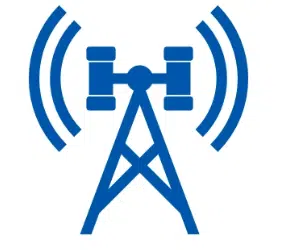In a landmark transaction, UScellular has announced a $1 billion agreement to sell a significant portion of its spectrum holdings to Verizon. The deal includes spectrum licenses in the 850 MHz band, as well as AWS (Advanced Wireless Services) and PCS (Personal Communications Services) licenses. This transaction comes as part of UScellular’s ongoing efforts to monetize its spectrum assets and marks a strategic move that will impact both the company and the broader telecommunications landscape.
This article will explore the details of UScellular’s spectrum sale, the importance of spectrum assets in the telecommunications industry, and the potential impact on the market. We’ll also examine UScellular’s strategic vision behind this deal and what it means for Verizon, other mobile carriers, and consumers across the United States.
What Is Spectrum and Why Does It Matter?
To understand the significance of this transaction, it’s essential to grasp what spectrum is and why it’s critical for wireless carriers. Spectrum refers to the range of electromagnetic frequencies that wireless signals travel over, enabling everything from voice calls to high-speed internet. Essentially, it’s the invisible highway over which data travels.
Spectrum is a finite resource, and its allocation is heavily regulated by government bodies like the Federal Communications Commission (FCC) in the United States. Carriers like Verizon, AT&T, and T-Mobile rely on spectrum licenses to provide services to their customers. These licenses are akin to real estate in the digital world — the more a carrier owns, the more capacity it has to provide services and maintain high-quality coverage.
Details of the UScellular-Verizon Deal
The deal between UScellular and Verizon includes a transfer of licenses in key frequency bands:
- 850 MHz Band: Known for its long-range capabilities and deep building penetration.
- AWS (695-2200 MHz) Band: Provides balanced coverage and capacity, making it ideal for a variety of wireless services.
- PCS (1850-1995 MHz) Band: Also known for its capacity benefits, often used in metropolitan areas to boost coverage.
This strategic sale aligns with UScellular’s ongoing efforts to refocus its business model. The transaction is subject to regulatory approval and standard closing conditions, but once approved, it will enhance Verizon’s spectrum portfolio, giving it an edge in maintaining its network superiority and expanding coverage in key regions.
UScellular’s Broader Strategy and the T-Mobile Sale
This deal isn’t occurring in isolation. Earlier this year, UScellular announced the sale of the majority of its wireless operations and select assets to T-Mobile for $4.4 billion. This move is part of UScellular’s strategic decision to scale down its operations amidst increasing competition and rising capital requirements to keep pace with the latest technologies.
UScellular’s sale to T-Mobile includes not only its wireless operations but also around 30% of its spectrum holdings. With Verizon now stepping in to acquire a portion of the remaining spectrum, UScellular is executing a deliberate plan to monetize its assets while ensuring the acquired spectrum is utilized effectively by other major carriers.
Strategic Implications of the Verizon Deal
- Monetizing Valuable Assets: Spectrum is one of the most valuable assets in the telecommunications industry. Selling these licenses to Verizon allows UScellular to realize significant financial gains. With Citigroup and Centerview Partners LLC serving as financial advisors, UScellular is capitalizing on these assets in a competitive spectrum market.
- Enhancing Verizon’s Network Capabilities: For Verizon, this acquisition is strategic. The additional spectrum holdings in critical bands will strengthen Verizon’s network capacity and coverage. This will be especially crucial as the carrier aims to meet increasing consumer demand for high-speed data and uninterrupted connectivity.
- Refocusing UScellular’s Core Operations: By selling a portion of its spectrum, UScellular is taking a focused approach to streamline its operations and optimize financial returns. This aligns with its earlier decision to sell the majority of its wireless operations to T-Mobile, allowing it to concentrate on its core strengths and adapt to changing market conditions.
Other Spectrum Deals in the Pipeline
In addition to its agreement with Verizon, UScellular has reportedly struck deals with two other unnamed mobile carriers to sell more spectrum licenses. These agreements involve the CBRS (Citizens Broadband Radio Service), C-Band, and 700 MHz bands. By diversifying its transactions, UScellular is ensuring that its remaining spectrum assets are effectively deployed in various regions by multiple carriers.
CBRS, in particular, has gained attention as a pivotal frequency range for 5G expansion. It offers new opportunities for mobile network operators to enhance coverage and capacity, especially in urban areas where network congestion is a growing issue. With the increasing adoption of 5G technology, CBRS spectrum is becoming a valuable asset for carriers looking to expand their networks.
The Role of Spectrum in 5G Expansion
The ongoing 5G rollout is driving demand for spectrum licenses like never before. 5G technology relies on various frequency bands to achieve its promise of ultra-fast speeds and low latency. Different bands serve different purposes — lower bands offer broad coverage, while higher bands deliver high speeds and capacity.
The Verizon-UScellular deal includes licenses in multiple bands, positioning Verizon to strengthen its 5G network. The 850 MHz licenses, for instance, are ideal for wide-area 5G coverage, while the AWS and PCS bands provide additional capacity in densely populated areas.
The Growing Importance of Spectrum Auctions
In recent years, spectrum auctions have become a critical battleground for wireless carriers. The FCC regularly holds auctions where carriers bid on spectrum licenses to expand their networks. Recent auctions, such as the C-Band auction, have seen intense competition among carriers, with billions of dollars spent on acquiring new spectrum holdings.
For UScellular, the decision to sell its spectrum directly to Verizon and other carriers rather than through an auction suggests a targeted strategy to maximize financial returns while expediting the transaction process.
UScellular’s Strategy Moving Forward
With the sale of a significant portion of its spectrum assets, UScellular is adopting a leaner operational model. The company’s CEO, Laurent C. Therivel, has emphasized the importance of focusing on core strengths and opportunistically monetizing valuable assets. The spectrum deals with Verizon and other carriers allow UScellular to achieve both goals.
According to Therivel, the deals ensure that valuable spectrum licenses are put to work for consumers throughout the country. This is a win-win scenario for both UScellular and the acquiring carriers, as it allows UScellular to unlock value from its assets while enabling Verizon and others to enhance their networks.
What This Means for Consumers
The sale of spectrum licenses to Verizon and other carriers is likely to benefit consumers in several ways:
- Improved Network Coverage: With additional spectrum holdings, Verizon can enhance its network coverage, particularly in areas where signal strength is weak. This means fewer dropped calls and better internet speeds for Verizon customers.
- Faster Data Speeds: The acquisition of licenses in the AWS and PCS bands will allow Verizon to expand its capacity, supporting faster data speeds and a better overall user experience.
- 5G Expansion: As Verizon continues to invest in 5G infrastructure, the newly acquired spectrum will play a crucial role in its expansion efforts. This means more consumers will have access to 5G services, enabling faster downloads, seamless streaming, and improved connectivity.
Challenges and Considerations
While the spectrum sale presents numerous benefits, it’s not without challenges. For UScellular, the sale of these valuable assets marks a significant shift in its business model. The company must carefully navigate the transition to ensure that its remaining operations remain profitable and sustainable.
For Verizon, the acquisition of additional spectrum licenses brings new responsibilities in terms of network management and integration. Spectrum holdings must be efficiently deployed to maximize coverage and capacity, requiring substantial investment in infrastructure.
The Future of Spectrum Management
The telecommunications industry is rapidly evolving, and spectrum management is at the heart of this transformation. With the rollout of 5G and the increasing demand for data services, the need for efficient spectrum utilization is more critical than ever.
As carriers like Verizon continue to acquire additional spectrum, effective management and deployment of these assets will determine their ability to stay competitive. For UScellular, the strategic monetization of its spectrum holdings reflects a broader industry trend toward focusing on core competencies and capitalizing on valuable assets.
Conclusion: A Strategic Shift in the Wireless Landscape
UScellular’s decision to sell a portion of its spectrum holdings to Verizon and other carriers marks a strategic shift in the wireless landscape. The $1 billion deal with Verizon underscores the importance of spectrum as a valuable asset and highlights the growing demand for frequency licenses in the era of 5G.
For UScellular, the transaction allows the company to realize significant financial gains while refocusing its operations. For Verizon, the acquisition of additional spectrum holdings strengthens its network capabilities, positioning it to meet increasing consumer demand for high-speed data and improved coverage.
As the telecommunications industry continues to evolve, spectrum management will remain a critical factor in determining the success of carriers. UScellular’s spectrum sale serves as a reminder of the ever-changing dynamics of the wireless market and the importance of adapting to new opportunities.
Key Takeaways:
- UScellular’s $1 billion sale of spectrum holdings to Verizon is part of a broader strategy to monetize valuable assets.
- The deal includes licenses in the 850 MHz, AWS, and PCS bands, enhancing Verizon’s network capabilities.
- UScellular has also struck deals with two other carriers to sell additional spectrum licenses in the CBRS, C-Band, and 700 MHz bands.
- The ongoing 5G rollout is driving demand for spectrum, making these



